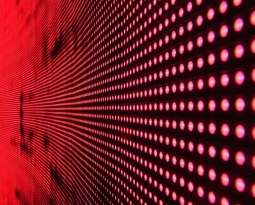Maine Patent of the Month – September 2021
Gear sets come in numerous forms – from spur to planetary. When they are meshed together, each gear in the chain is capable of driving the others in either rotational direction. Depending on friction forces, the gear set might cause unwanted movement and cause the gears to rotate in the opposite direction. This is called backdriving and is both undesirable and dangerous. There have been some attempts at making self locking gears, but most of these are known to have low efficiencies. WedgeRock LLC has designed a new self locking mechanism especially for use in planetary gear sets.
The locking apparatus uses a unidirectional engage and disengage mechanism as locking wedges. They can be activated by the action of differentiation connectors. In this design, these connectors are planet pins in the planet carrier slots. This allows the planet gears in the planet carrier to contact the locking wedges. One locking wedge is positioned closest to the clockwise position of the planet carrier slot. When engaged, it allows the planet gear to rotate counterclockwise, but fully prevents clockwise rotation. A second wedge is similarly positioned near the clockwise position of the carrier slot and provides the same mechanism in reverse. These wedges are engaged by the input shaft. The input shaft is coupled to the sun gear. When it rotates clockwise, it engages the planet gear and causes them to rotate counterclockwise. The planet gears are then further engaged with the planet pin, locking it in that direction. Again, the same process can happen in reverse, locking it in the other direction. This fully prevents any back-driving possible. It’s a simple design with easy implementation, and as usual – the simplest designs are often the most efficient.
Are you developing new technology for an existing application? Did you know your development work could be eligible for the R&D Tax Credit and you can receive up to 14% back on your expenses? Even if your development isn’t successful your work may still qualify for R&D credits (i.e. you don’t need to have a patent to qualify). To find out more, please contact a Swanson Reed R&D Specialist today or check out our free online eligibility test.
Who We Are:
Swanson Reed is one of the U.S.’ largest Specialist R&D tax advisory firms. We manage all facets of the R&D tax credit program, from claim preparation and audit compliance to claim disputes.
Swanson Reed regularly hosts free webinars and provides free IRS CE and CPE credits for CPAs. For more information please visit us at www.swansonreed.com/webinars or contact your usual Swanson Reed representative.

















